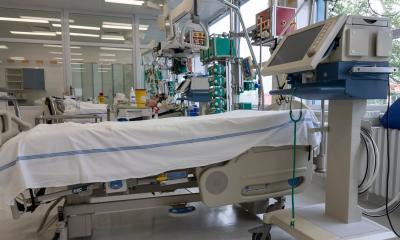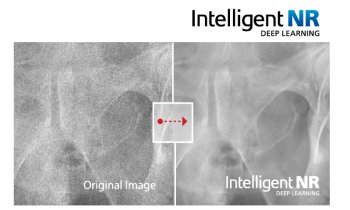Image source: Shutterstock/Johan Swanepoel
News • Machine learning in intensive care
AI can predict circulatory failure in ICU
Researchers at ETH Zurich and Inselspital, Bern University Hospital, have developed a method for predicting circulatory failure in patients in intensive care units (ICU) – enabling clinicians to intervene at an early stage.
Their approach uses machine learning methods to evaluate an extensive body of patient data. The researchers published their findings in the journal Nature Medicine.
Patients in a hospital’s ICU are kept under close observation: clinicians continuously monitor their vital signs such as their pulse, blood pressure and blood oxygen saturation. This furnishes doctors and nurses with a wealth of data about the condition of their patients’ health. Nevertheless, using this information to predict how their condition will develop or to detect life-threatening changes far in advance is anything but easy.
The researchers developed a method that cleverly combines a patient’s various vital signs with other medically relevant information. Fusing this data enables critical circulatory failure to be predicted several hours before it occurs. In future, the aim is to use the method for real-time evaluation of hospital patients’ vital signs to provide an early warning system for the medical staff on duty, who, in turn, can take appropriate action at an early stage.
The researchers were able to develop this approach thanks to the wealth of data supplied by the Department of Intensive Care Medicine at Bern University Hospital. In 2005, it became the first large ICU in Switzerland to start storing granular, high-resolution data for intensive care patients in digital form. For their study, the researchers used anonymised data from 36,000 admissions to intensive care units, which came exclusively from patients who agreed to their data being used for research purposes.
Even short periods of inadequate circulation significantly increase the mortality of patients
Tobias Merz
On the initiative of Tobias Merz, research associate and former senior physician at the Department of Intensive Care Medicine at the University Hospital in Bern and who now works at Auckland City Hospital, researchers led by ETH professors Gunnar Rätsch and Karsten Borgwardt analysed this data using machine learning methods. “The algorithms and models we developed were able to predict 90 percent of all circulatory failures in the dataset we used. In 82 percent of the cases, the prediction came at least two hours in advance, which would have given doctors at least two hours to intervene,” explains Rätsch, Professor of Biomedical Informatics at ETH Zurich.
For each patient in their study, the researchers had several hundred different variables combined with other medical information at their disposal. “However, we were able to show that just 20 of these variables are sufficient to make accurate predictions. These include blood pressure, pulse, various blood values, the patient’s age and the medication administered,” explains Borgwardt, Professor of Data Mining at ETH Zurich. To further improve the quality of the predictions, the researchers plan to incorporate patient data from other large hospitals into future analyses. In addition, they will make the anonymised dataset, the algorithms and the models available to other scientists.
“Preventing circulatory failure is a crucial aspect of patient treatment in intensive care. Even short periods of inadequate circulation significantly increase the mortality of patients,” Merz says. “In intensive care units today, we have to deal with a multitude of alarm systems, but they’re not very accurate. Often, they trigger false alarms or they give us only a short advance warning, which can delay initiation of adequate measures to support a patients circulation,” he says. With their approach, the researchers aim to replace the large number of alarms with a few, highly relevant and early alarms. This is possible, as the study showed that the new method could cut the number of alarms by 90 percent.
Some further development work is required to make the method ready for use as an early warning system. Rätsch explains that the first prototype already exists, but before the system can be employed in everyday clinical practice, its reliability must be demonstrated in clinical studies.
Source: ETH Zurich
10.03.2020










